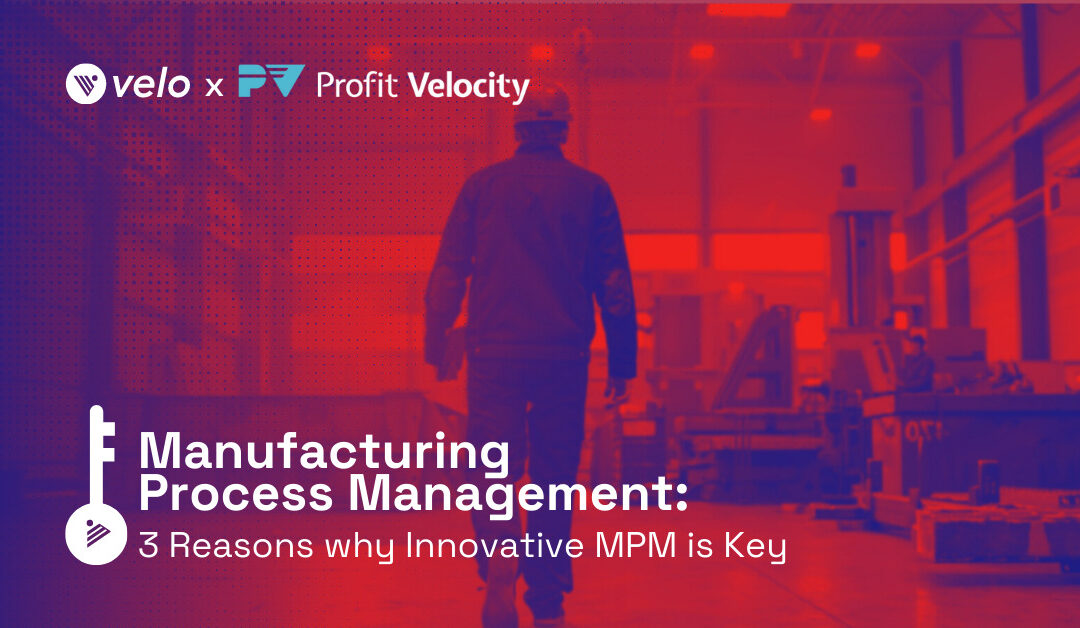August 18th, 2021 | Blog
Manufacturing Process Management: 3 Reasons why innovative MPM is Key
Manufacturing process management (MPM) is a collection of technologies and methods used to define how products are manufactured. During the practice of MPM, manufacturing planners take in product specifications, consider internal plants and external suppliers, then determine how best to produce the product.
Manufacturers today see many industry forces requiring them to rethink and adjust their Manufacturing Process just to keep up with the pack. A Manufacturing Process is the procedures in place that turn resources into a finished product – an age-old idea that must be revamped for the 21st century.
#1 Proven Practices of Production Efficiency have Become Common
The manufacturer’s priority has always been to produce higher-quality products faster and cheaper. Recently, leverage from their unique manufacturing processes and strategies has begun to decline.
According to a study done by Oxford Economics, over 70% of executives surveyed said that within 3 years, optimizing operations will become “the industry’s price of entry rather than a source of long-term differentiation.”
 Consider this: If two rival companies are using conventional practices, both companies miss the opportunity to differentiate their performance. If one company ups their game, they get the edge. In quick order, a leader emerges, and the follower falls behind. That’s why your Manufacturing Process Management needs to be not only effective but also innovative, giving your business the competitive advantage it needs to thrive.
Consider this: If two rival companies are using conventional practices, both companies miss the opportunity to differentiate their performance. If one company ups their game, they get the edge. In quick order, a leader emerges, and the follower falls behind. That’s why your Manufacturing Process Management needs to be not only effective but also innovative, giving your business the competitive advantage it needs to thrive.
#2 Product Quality and Customer Satisfaction have never been more Valuable
Now, manufacturers must not only create a production plan using those processes aimed to satisfy their massive customer base around the world but it must also be designed with the individual customer, from a specific region, served from a discrete set of manufacturing assets, in mind too. For larger manufacturers, making a complex array of products, the challenge can be daunting.
Adding in globalization to the MPM process adds layers of complexity that an outdated Manufacturing Process is not equipped to handle. The products need to meet customers’ distinct needs and preferences in individual locations, meaning that local plants must be able to adapt to these regional production differences. Similar to how a team that can only play in front of a home-field advantage has no chance at making the playoffs.
No matter the number of customers in your service, where they are located or the number of product SKUs you produce, quality and customer satisfaction need to be at the forefront of your Manufacturing Process Management.

#3 Better MPM = Revenue Increases
Increased product quality and customer satisfaction lead to a better reputation and ultimately more business. With effective Manufacturing Process Management, manufacturers will identify and optimize the processes involved in the production of their goods or services. Correcting the inefficiencies in the process design can lead to cutting production costs.
Here’s the point: improving your MPM will allow you to reduce costs and sell more products. This, in turn, creates a revenue increase that will allow for the continuation of growth for the company.
Improving your business’s Manufacturing Process Management can be challenging to do. Velocity-based analytics uses data readily available in your ERP and supply-chain systems and enables manufacturers to identify large profit opportunities that lay hidden in your operations, providing a glide path to world-class MPM.
Take advantage of a complimentary phone call where we will divulge our perspective on how you can not only deliver on the promise of MPM but transform your profits.
Sign up using the form below.
